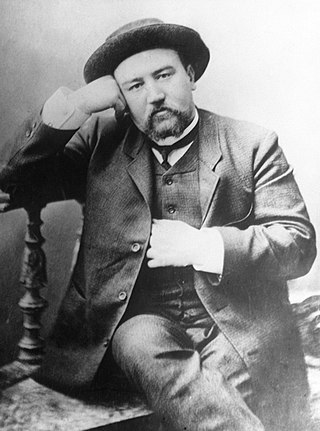
Richard Burton Matheson was an American author and screenwriter, primarily in the fantasy, horror, and science fiction genres.
Immortality is the ability to live forever, or eternal life.

Aleksandr Ivanovich Kuprin was a Russian writer best known for his novels The Duel (1905) and Yama: The Pit (1915), as well as Moloch (1896), Olesya (1898), "Captain Ribnikov" (1906), "Emerald" (1907), and The Garnet Bracelet (1911) – the latter made into a 1965 movie.
A doppelgänger is an apparition or double of a living person in folklore and fiction.
Last words are a person's final words spoken before death.
The Requiem is a Roman Catholic liturgical service.
Time Traveler(s) or Time Traveller(s) may refer to:
A golem is an artificial animated being in medieval and Jewish folklore.
Father's Day is a secular holiday celebrating fatherhood.
Ruins are the remains of man-made architecture.
A showdown is a duel. The term may also refer to:
The Wedding may refer to:
Follower or variants may refer to:

The Duel is a novel by Russian author Aleksandr Kuprin published in 1905. It is generally considered his best work; even though Kuprin's 1896 short story Moloch first made his name known as a writer it was The Duel (1905) which made him famous. Because of it "Kuprin was highly praised by fellow writers including Anton Chekhov, Maxim Gorky, Leonid Andreyev, Nobel Prize-winning Ivan Bunin" and Leo Tolstoy who acclaimed him a true successor to Chekhov.
This page is based on this
Wikipedia article Text is available under the
CC BY-SA 4.0 license; additional terms may apply.
Images, videos and audio are available under their respective licenses.


